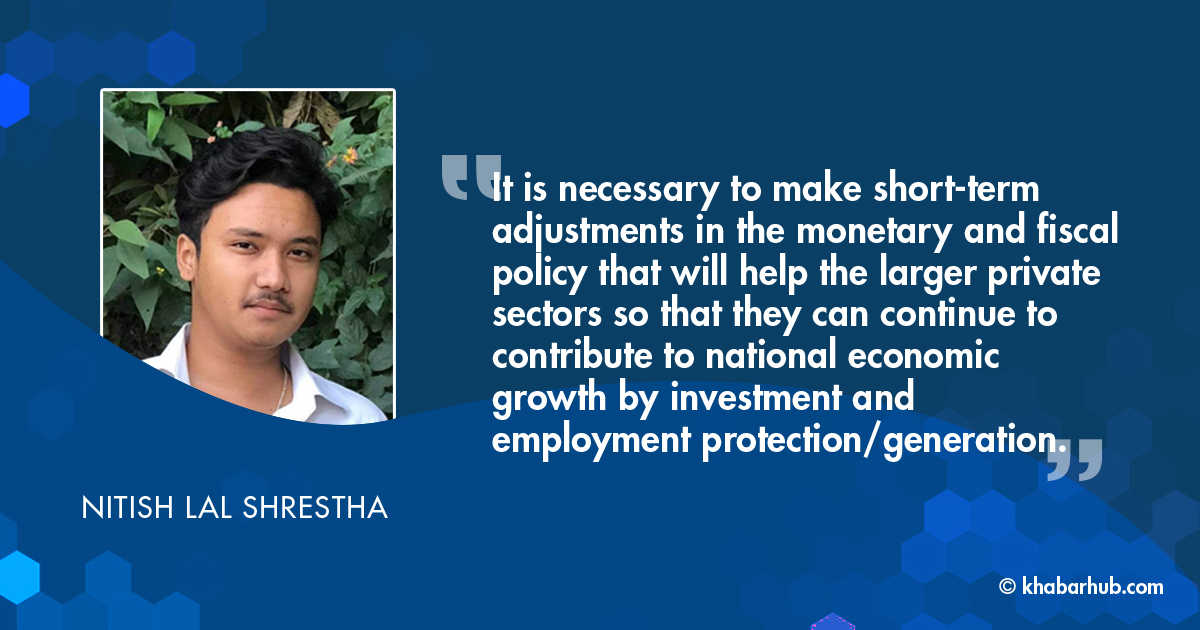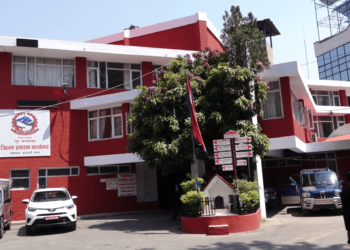It has been almost a year since the world witnessed the Covid-19 pandemic. Within a period of nine months, the virus has left numerous adverse impacts on both society and the economy.
While millions of people are left unemployed, multiple business houses have had to experience closure and bankruptcy.
Unemployment remains one of the biggest problems in Nepal, not just now but for decades, compelling millions of Nepali youths to migrate in search of better livelihood opportunities.
In the case of employment generation, the political leadership in the country has not been able to address and implement its promises of creating job opportunities within Nepal.
Even the PM KP Oli-led government’s Prime Minister Employment Program has failed to offer jobs and meet its stipulated targets.
The government should help identify such products. It will also be wise on the part of the government to make available all required equipment, technology with their cost and profit margins.
The question is: What can be done to generate massive employment opportunities in Nepal? Perhaps the answer could be the government needs to prepare itself to promote a nationwide program for creating employment opportunities for its youths as a priority and those entrepreneurs and enterprises that are needed for generating employment and help the economy.
In this article, three employment opportunities are mentioned that are possible during the post-COVID -19 period:
Expanding the Food and Agriculture sector:
The food and agriculture sector is one of the most potential sectors to create employment, and the country’s sustainability. The agricultural sector plays and has been playing a crucial role in the development of a country like Nepal.
Considering the current situation amid the pandemic, the production of goods experienced an all-time low. Both agricultural produce as well as manufacturing goods decreased due to the pandemic.
Although agricultural production is possible in Nepal with a large proportion of the population engaged in agricultural practices, the country has been unable to increase the yield and improve the quality of the products
It should be noted that a significant number of Nepali youths, who returned from overseas employment owing to the pandemic, are unemployed and will be looking for employment opportunities, including self-employment opportunities.
Therefore, it is high time that the government worked towards creating employment opportunities in the country. As agriculture is a labor-intensive sector, an increased number of laborers is sure to benefit production, but this is also an opportunity to look into value-added aspects.
The government should also encourage citizens in all provinces to ensure the bulk production of agricultural goods.
For this, the government should ensure that their products will get a good market. The government also needs to fix the price of commodities, where which might be needed.
Likewise, the government should encourage the farmers to produce agricultural products currently being imported, and those items having high export potential.
Traditional farming of paddies should be reviewed, even discouraged where relevant, by diversifying cultivation according to the region and climatic condition.
It is also high time that the farmers produced cash crops on a large scale, a scale that is viable for business, to ensure the export of such products.
Furthermore, the government should encourage, motivate and facilitate citizens to set up cold storage in various parts of the country with the help and support of the Government at federal, provincial and local levels as deemed appropriate.
Experiences in other countries have shown that such cold storages are profitable and hence may be suitable for private sectors or cooperatives.
Another, area where there is huge potential in aquaculture. The government should emphasize promoting aquaculture farming nationwide.
Along with this, the farmers must be provided hassle-free loans wherever needed. This is good for income generation as well as for the country’s economic growth.
The other significant step is to encourage the production of food processing plants (SMEs) considering the substitution as well as export.
The government should help identify such products. It will also be wise on the part of the government to make available all required equipment, technology with their cost and profit margins.
In a wider aspect, the government should initiate a Nationwide Skills Development and Entrepreneurship Program (NSDEP) like what India has done, with variation as needed for Nepal. In India, it is widely known as PM Modi’s program.
They need not be free but at a reasonable term on a case by case basis. It has often been mentioned that the price will not be competitive with India and China; basically because of our weather and the fertile land. This is where the role of the Government is important.
It is important to adapt TECHNOLOGY, QUALITY, AND SAFETY STANDARDS, and PACKAGING, etc. that meet international quality which will help export.
However, the government must ensure that it provided uninterrupted essentials such as fertilizers, seeds, technical advice, and other necessities.
Concessional Credit Line for SMEs and Adjustments to Monetary and Fiscal Policies
A Line of Credit is an agreement that creates a maximum loan balance between a financial entity, typically a bank, and a customer that the bank would allow the borrower to retain.
The borrower can at any time, draw down a line of credit unless he/she reaches the maximum stated in the agreement.
The borrower’s benefit is that interest is measured only on the amount of the loan used and for the length of the loan used.
The fact cannot be denied that the impact of Covid-19 on SMEs has been massive. There wouldn’t be more of a perfect time than now to create a concessional credit line for SMEs with a simplified procedure using the financial institutions.
It is also necessary to make short-term adjustments in the monetary and fiscal policy that will help the larger private sectors so that they can continue to contribute to national economic growth by investment and employment protection/generation.
These activities should be initiated with a sound plan in close coordination with the banking sector, private sectors like FNCCI, CNI, and NCC, and others as appropriate.
There is a huge potential for Nepal to leapfrog in the digital economy and also prepare workforce for global employment.
In fact, this is the right time to establish regular dialogues between the government and private sector keeping nation-building at the center of the agenda.
National Skills Development and Entrepreneurship Program
In a wider aspect, the government should initiate a Nationwide Skills Development and Entrepreneurship Program (NSDEP) like what India has done, with variation as needed for Nepal. In India, it is widely known as PM Modi’s program.
This program should have training in several sectors. For instance, for the informal or less educated group, in service sectors, etc., they will be exposed to good quality training and receive a globally recognized certificate. This will motivate people to join the training sessions and boost their confidence.
Hence, at the initial stage, it is better to seek help from developed countries like Japan, Korea, Germany, Singapore, and even Malaysia.
This will also help to increase the employment of Nepalese in the job market in those countries. This way we could eventually replace those from neighboring countries and in other less favorable countries.
It should also be emphatically noted that if the candidates are unemployed or during the training, they should receive a stipend enough to make a basic living.
Similarly, an apprenticeship program for fresh graduates with stipends should be initiated. The stipends should be managed by the employer if possible and if not on a cost-sharing basis with support from the government.
If the current ruling government is responsible and committed to the welfare of the citizen during this crisis period, it should put the party conflict aside and rather work on developing Nepal by implementing necessary projects.
This is basically to supplement the degree (education) with the real world (employers) skill needs. On the other hand, higher skills development /reskilling for future as such IT, using a voucher-based approach should also be carried out.
There is a huge potential for Nepal to leapfrog in the digital economy and also prepare workforce for global employment.
Furthermore, higher skills development for people employed in Covid-19 affected sectors such as travel, tourism, hotel, industries, etc. is a must so that many of them can become an entrepreneur and job creator instead.
More details could be seen from PM Modi’s National Skills Development and Entrepreneurship program – however, the program will need adjustment to make it more relevant to Nepal.
What has to be noted is that every crisis comes with an opportunity. If the government contemplated these issues, the socio-economic crisis in Nepal can be turned into an opportunity that could take Nepal into the path of development in the Post-Covid-19 era.
If the current ruling government is responsible and committed to the welfare of the citizen during this crisis period, it should put the party conflict aside and rather work on developing Nepal by implementing necessary projects.
The bottom line is: Focusing on the current national crisis in the country, not only the crisis in the party, is an urgent priority.









Comment